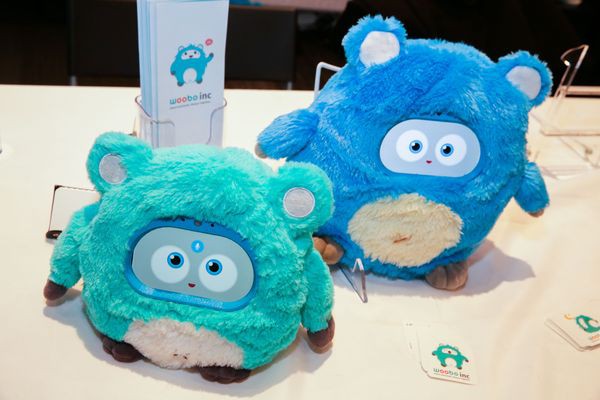Smart toys and privacy…
One more article that all parents should read, because it seemt that there’s a thin line to walk between privacy and profits if you’re looking to build a smart toy.
It’s a source of anxiety for any parent: getting rid of your child’s beloved toy. That’s exactly what regulators in Germany told citizens to do with My Friend Cayla. And it wasn’t enough to just throw Cayla away; parents actually had to destroy the blonde, peppy-looking doll.
The smart toy, which records conversations with kids, fell into the category of “hidden espionage devices,” according to the regulators. My Friend Cayla was accused of asking children personal questions, like their favorite shows and toys, and saving the data to send to a third-party company that also makes voice identification products for police.
Just a day after the German ban was announced, Toy Fair kicked off in New York — and smart toys were all over the place. Teddy Ruxpin, the storytelling bear beloved by ’80s babies, returned with a high-tech makeover, as did Hologram Barbie, a voice-assistant animated sequel to the controversial Hello Barbie. Toy Fair also featured smart toy newcomers like Woobo, essentially a cuddly version of the Amazon Echo and Google Home speakers.

The contrasts illustrate the fine line between protecting one’s privacy and the desire to create compelling and engaging products. It’s the same broader debate that’s raging throughout the technology and consumer electronics world, with companies like Google hoovering up personal data to better serve you ads. Only this time, the issue affects impressionable children.
Smart toys are a multibillion-dollar industry that’s only getting larger as more kids are growing up connected and clamoring for the next high-tech distraction. Parents are flocking to connected toys for tots, with one research firm predicting that revenue for smart toys will reach $8.8 billion by 2020.
The booming market could be blowing up even faster if only children’s online privacy concerns weren’t in the way, members of the toy industry lamented at Toy Fair. While parents are looking out for their kids’ safety and privacy, toymakers say data collection is necessary to make the next generation’s iconic toy.
Parental control
The folks at Woobo are walking that thin line with their smart toy, a cuddly companion with a screen for a face, touch sensors on its belly and microphones around its head. They’re looking to develop a voice assistant that learns how to talk with kids — mispronunciations and all.
To do that, it needs to keep recordings of children playing with it so the artificial intelligence can learn how to process language, said Tony Landek, Woobo’s product manager. It’s the same reason Amazon saves all its voice data from the Echo and Apple does so with Siri recordings. The difference is that Amazon and Apple aren’t primarily recording children.
It’s still in the works, but Landek is considering a dashboard on which parents can see everything that’s being recorded in a simple way, and delete it if they’d like. He believes that with smart toys, privacy isn’t the issue, transparency is.
“We’ve talked to a lot of parents and they think that’s awesome that their toys can improve over time with their kids talking to to it,” Landek said. “We tell them what data we’re going to collect, and they don’t seem too flustered by it.”
Playing with privacy
The Children’s Online Privacy Protection Act, passed in 1998, requires companies targeting kids under 13 to get consent from parents before collecting personal information from children, as well as allowing parents to review any data a company collects on their kids. The data also must be deleted within 30 days of its use. COPPA’s author, Sen. Edward Markey, a Massachusetts Democrat, questioned the makers of My Friend Cayla about potential violations of the act “given the sensitive nature of children’s recorded speech.”
The toy industry, unsurprisingly, takes a different view.
“To take smart toys to the next level of engagement and give kids what they want, you have to take data and create an engaging experience that’s connected to their friends and based on their persona,” said Krissa Watry, CEO of Dynepic, the company behind iOKids, a social media platform for children and their parents.
Watry originally tried to create a smart toy but stopped after finding security and privacy for children a massive burden for toy companies — a fate she’s seen elsewhere among her peers.
“This is why the 5-12 category sucks,” Watry said at the Digital Kids conferenceearlier this week, commenting on COPPA’s restrictions on toy innovations. Companies have been moving cautiously when it comes to smart toys because children’s privacy gets a great deal of scrutiny.
One mistake, and you could end up being banned in Germany.
Read the full article from here

